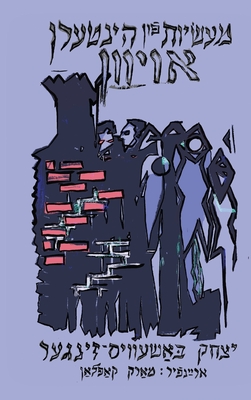Introduction by Marc Caplan, Baton Rouge, Louisiana Although it is unsurprising that Isaac Bashevis Singer was the only Yiddish writer chosen for a Nobel Prize in Literature-the only Yiddish writer who will ever be so honored-it is equally unsurprising that this honor has caused such enduring controversy among Yiddish readers. For these readers, Bashevis's writing has been distinguished by two characteristic transgressions. His focus on the occult, rooted with intimate detail in the folklore and demonology of Polish Jewry, calls to mind superstitions that a supposedly secular Yiddish culture had been battling for nearly two centuries. And his focus on morbid and prurient sexuality equally embarrassed a readership that had never developed a taste or even tolerance for eroticism in their "respectable" literature. In both a psychological and historical sense, he confronts readers with aspects of their own culture that they would have preferred to remain consigned to a distant past. Yet in both of these tendencies, Bashevis sought to reconsider the terms that have defined Yiddish literature since its "classic" era during the nineteenth century. Specifically, the thematic and stylistic character of Bashevis's fiction stems directly from the writing of Y.L. Peretz, the writer who most greatly influenced Yiddish culture in the interwar period, particularly in Bashevis's native Poland. Where Peretz had sought to re-purpose Yiddish folklore to promote a modern, rational, humanist ethos, Bashevis mined the same tradition to exploit its irrational, bizarre, and demonic characteristics. No less an authority than Gershom Scholem, in one of his few published remarks on Yiddish literature, credited Bashevis's writing as a significant source for understanding the debts that Jewish demonology owes to Polish folklore.[1] Where Peretz sought to introduce an image of romantic love and healthy, if modest, sexuality to modern Yiddish literature-particularly through his revival of the literary fairy tale-Bashevis used the same Polish-Jewish folklore to depict sexuality as the most primitive trick in the least accomplished demons' repertoire. Bashevis grew up with two distinguished writers, crediting his brother I.J. Singer as his greatest inspiration, particularly after his brother's early death, and mostly ignoring his older sister Esther Singer Kreitman or damning her remarkable, often painfully autobiographical stories and novels with faint praise. But it was Peretz who serve











